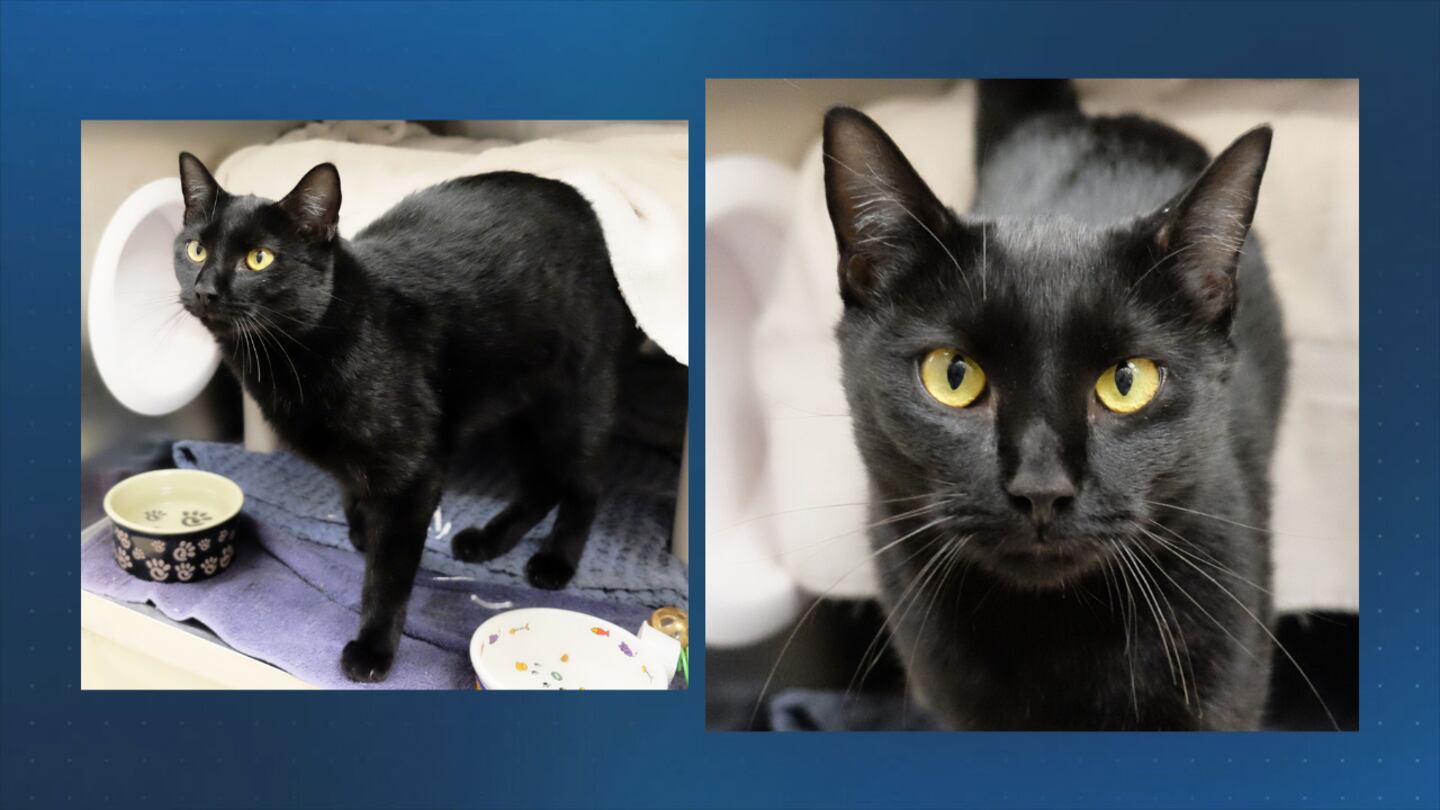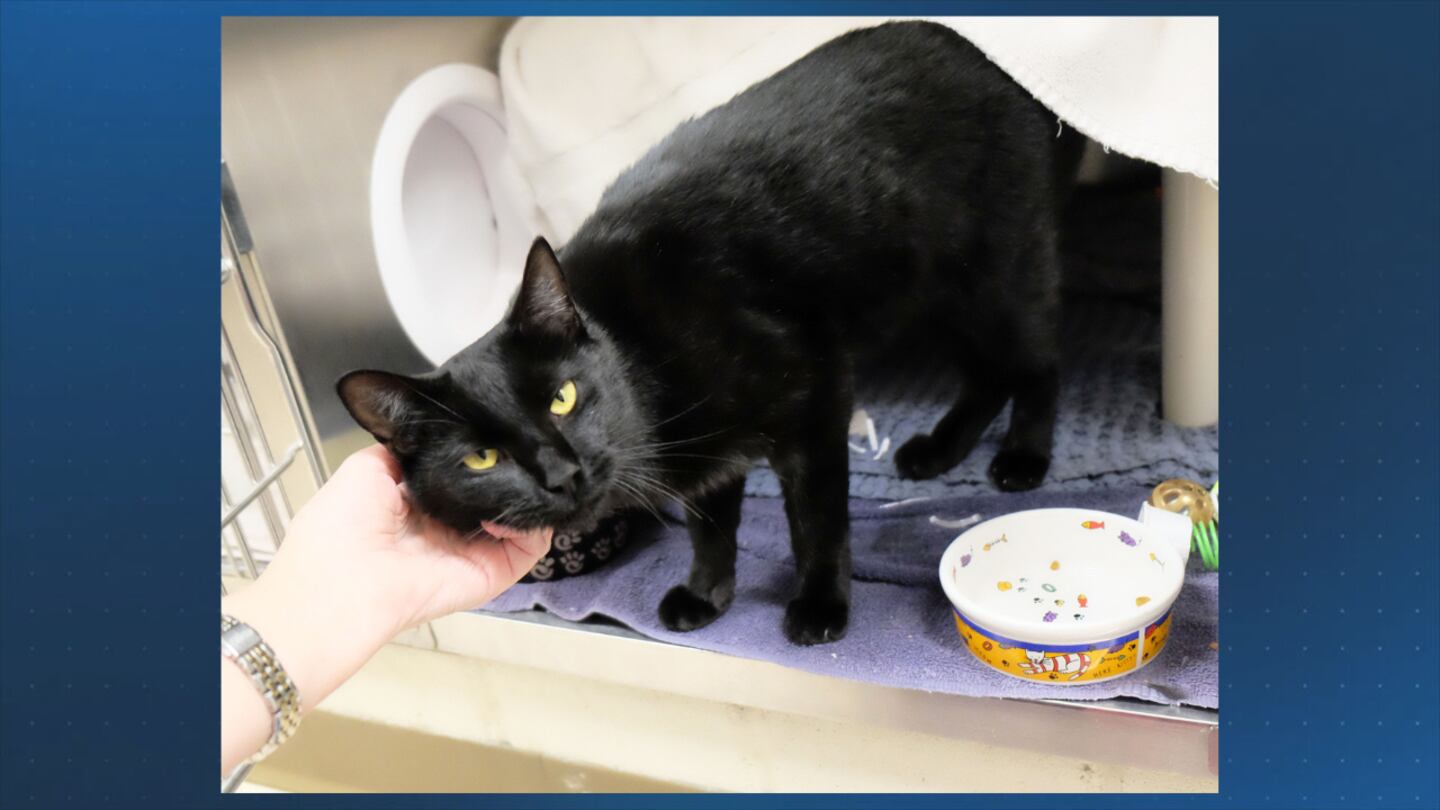ANN ARBOR, Michigan — Crouching Tiger is no longer far from home.
The black cat, which went missing eight months ago from its New Hampshire home, somehow turned up 700 miles away---in Michigan.
Exactly how the kitty got to Michigan remains a mystery.
“Crouching Tiger came to us as a stray. We never imagined how far she’d traveled from home,” the Humane Society of Huron Valley in Ann Arbor, Michigan said in a social media post recently.
“Her microchip led us to her original adoption center, who helped us connect her with her family -- 700 miles away in New Hampshire!” the rescue group said.
The traveling cat stunned her New England family when they got the call that the Michigan group had found her.
“Imagine their surprise when we called them up. Crouching Tiger had gone missing 8 months earlier, and they’d given up hope of ever finding her,” the Humane Society of Huron Valley said.
“We wish Crouching Tiger could tell us the story behind her baffling journey, but the happy ending is what matters,” the group said. “Her family wasted no time and caught a plane to Michigan, to bring their baby home.”
“Although Crouching Tiger’s story is extraordinary, lost pets are unfortunately a common occurrence,” the group said. “Which is why we always say: microchip, microchip, microchip! It’s a quick and inexpensive procedure that any veterinarian can perform.”
Microchips are tiny transponders, about the size of a grain of rice, that can be implanted under your pet’s skin by most veterinarians and animal shelters; some shelters implant chips in all pets they place, according to the Humane Society of the United States.
Reading a microchip takes a special scanner, one that an animal control officer or shelter will have, the agency said.
“Microchips provide an extra level of protection in case your pet loses their collar or tags,” the Humane Society of the United States said. “Studies show that pets with chips are much more likely to be returned to their owners than those who lack one.”
This is a developing story. Check back for updates as more information becomes available.
Download the FREE Boston 25 News app for breaking news alerts.
Follow Boston 25 News on Facebook and Twitter. | Watch Boston 25 News NOW
©2025 Cox Media Group









